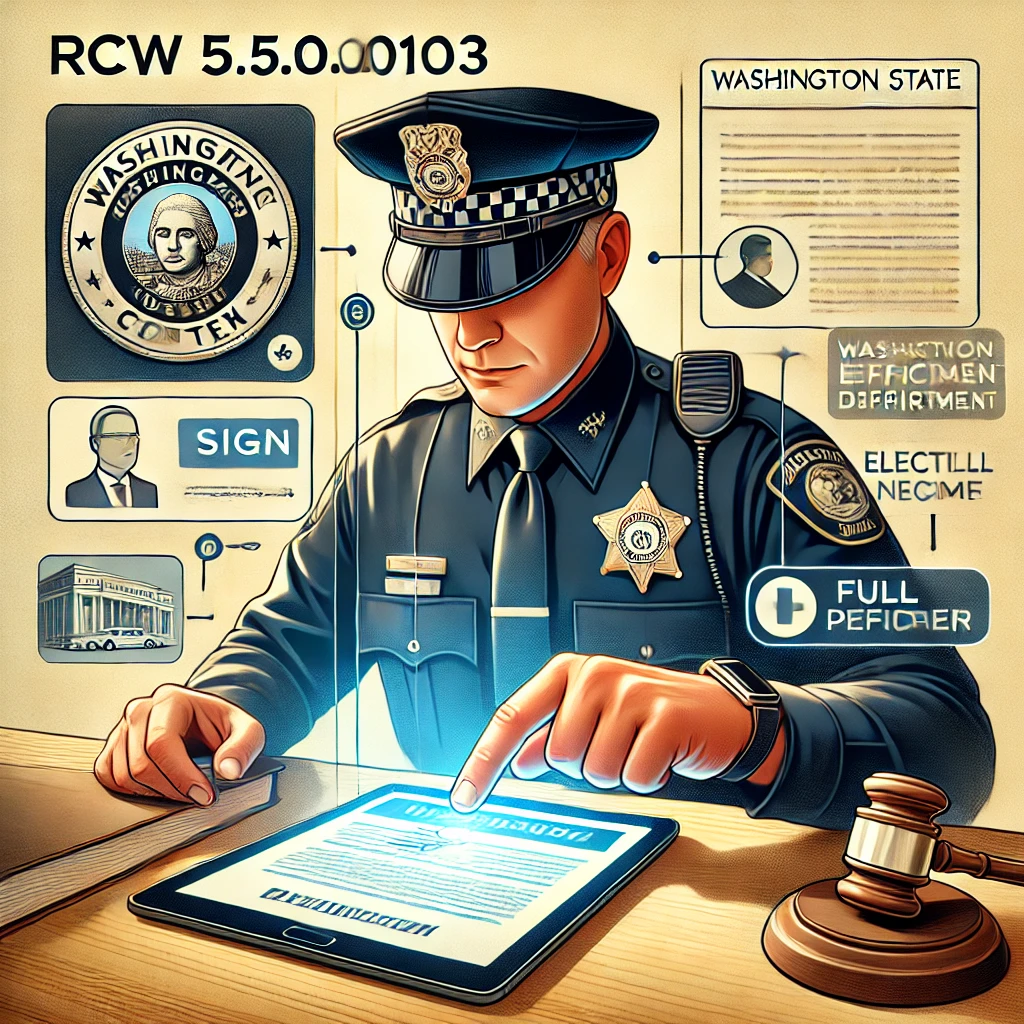Understanding RCW 5.50.010(3)(e): Electronic Signatures by Law EnforcementBlanford Law
In Washington State, the adoption of electronic signatures has streamlined legal processes, particularly for law enforcement agencies. RCW 5.50.010(3)(e) specifically addresses how law enforcement officers can electronically sign records, ensuring secure and authenticated submissions to courts and prosecutors.Blanford Law
What Does RCW 5.50.010(3)(e) Entail?
According to RCW 5.50.010(3)(e), a law enforcement officer can “sign” a record by:Blanford Law
- Affixing or logically associating their full name,
- Including their department or agency, and
- Adding their badge or personnel number.cwaelections.com+5Blanford Law+5Washington State Legislature+5
This method is valid when the record is electronically submitted from a device owned, issued, or maintained by a criminal justice agency.Washington State Legislature+2Blanford Law+2Washington State Legislature+2
Importance of Electronic Signatures in Law EnforcementBlanford Law
The implementation of electronic signatures under RCW 5.50.010(3)(e) offers several benefits:Blanford Law
- Efficiency: Allows for quicker submission of documents, essential in time-sensitive situations.
- Security: Ensures that only authorized personnel can submit records, maintaining the integrity of legal documents.
- Accountability: By including identifiable information, it creates a clear trail of responsibility.Blanford Law
Legal Recognition and ComplianceMRSC
The statute aligns with the Uniform Electronic Transactions Act (UETA), which provides legal recognition to electronic records and signatures. This ensures that electronic submissions by law enforcement are legally binding and admissible in court.MRSC+2Washington State Legislature+2LawFiles+2
Best Practices for Law Enforcement Agencies
To comply with RCW 5.50.010(3)(e), law enforcement agencies should:
- Use devices that are owned, issued, or maintained by the agency for electronic submissions.
- Ensure that electronic signatures include the officer’s full name, department, and badge number.
- Implement secure systems to prevent unauthorized access or alterations to electronic records.Washington State Legislature+2Blanford Law+2Washington State Legislature+2
ConclusionWestlaw+22Blanford Law+22WeSignature – Unlimited e-Signatures+22
RCW 5.50.010(3)(e) plays a crucial role in modernizing the legal processes within Washington State’s law enforcement agencies. By defining the parameters for electronic signatures, it ensures that electronic submissions are secure, authenticated, and legally recognized.
Review our client resources here
Contact us anytime for your urgent legal needs.
About Blanford Law:
We are no-nonsense, relentless, fair, and honest. We are great listeners instead of fast talkers, that is just who we are. More than 20 years ago, Ken began practicing law with a deeply-seeded belief that every person has the right to the best legal representation available. He built his law firm on that belief. Another belief that he strongly adheres to is his fundamental belief that clients deserve respect, with no assumptions or preconceived notions. If you or someone you know is accused of a crime or injured as a result of the negligence of another, please have them call us at 253-720-9304 or email us info@blanfordlaw.com

